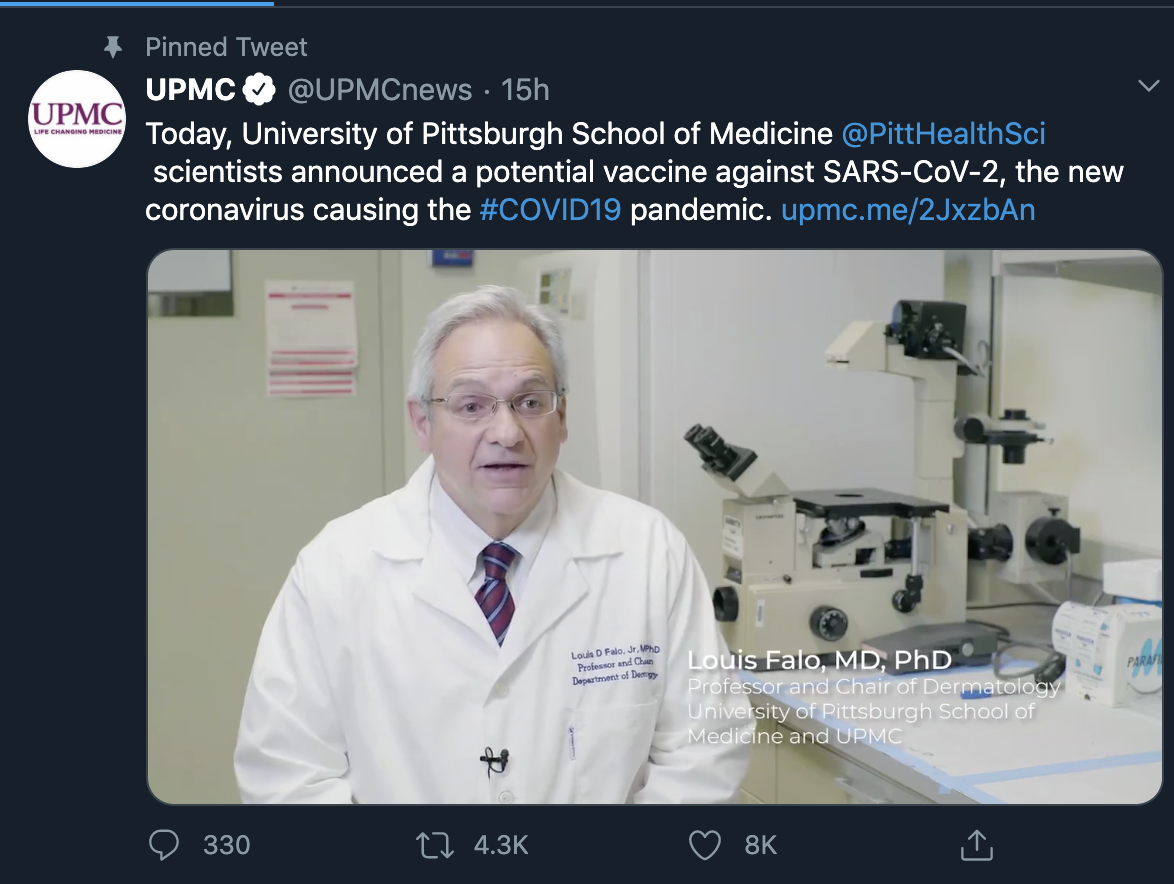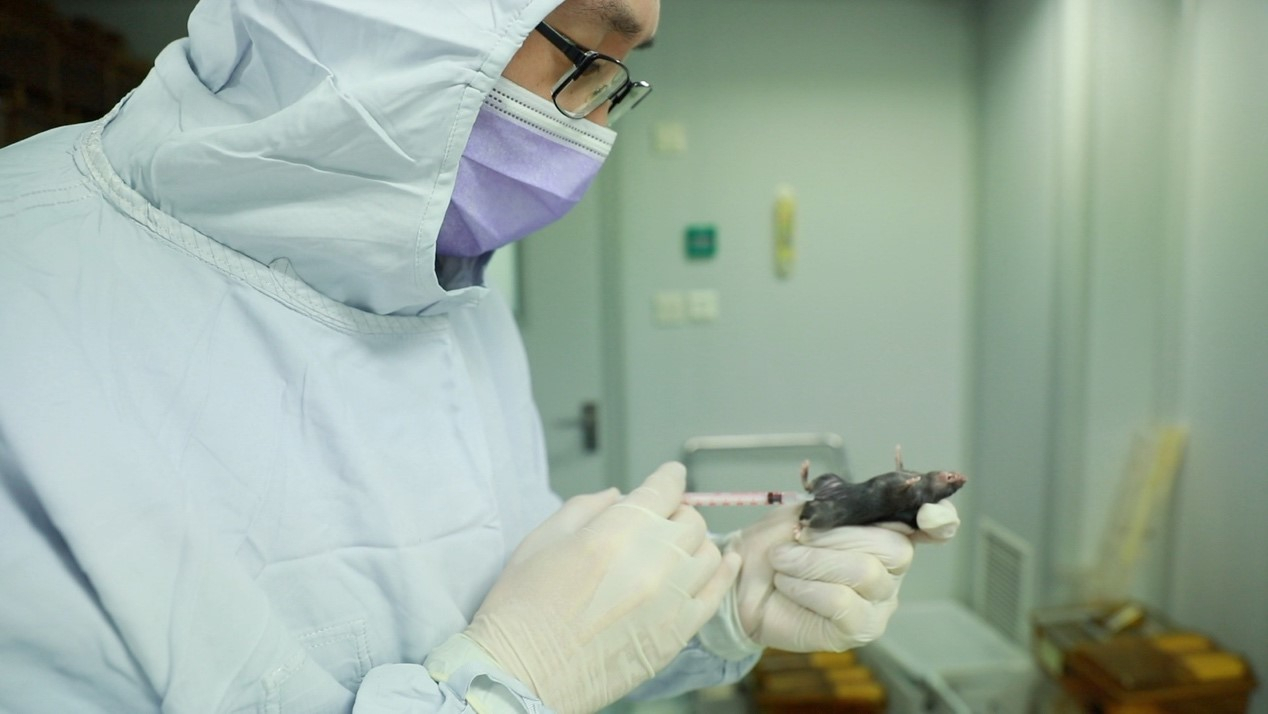Editor's note: This is the 32nd article in the COVID-19 Global Roundup series. Here is the previous one.
While medical workers struggle to care for the rising tide of COVID-19 patients and politicians try to convince nearly half of the world's population to stay at home to slow the pandemic, everyone is waiting for one thing: a cure.
The approaches have varied dramatically. Some teams are looking at the effects of existing medicines as potential treatments, some are experimenting with repurposing common drugs. Others are using cutting-edge technologies to fashion radically new types of vaccines.
The WHO has selected four drugs or combinations for a large scale global trial involving patients from Argentina to Thailand.
These are the experimental antiviral treatment remdesivir; a combination of two HIV drugs, lopinavir and ritonavir; those two drugs plus interferon beta, an immune system medication; and the malaria drug chloroquine.

Dr. Anthony Fauci, director of the U.S. National Institute of Allergy and Infectious Diseases, addresses the daily coronavirus response briefing at the White House in Washington, April 1, 2020. /Reuters
Dr. Anthony Fauci, director of the U.S. National Institute of Allergy and Infectious Diseases, addresses the daily coronavirus response briefing at the White House in Washington, April 1, 2020. /Reuters
Remdesivir, is currently in the spotlight as one of the most promising treatments. It was initially designed for Ebola, where it was shown to be ineffective, and it has not yet been approved for anything.
Remdesivir is made by a U.S.-based Gilead Sciences, and is already in the final stages of clinical trials in Asia. Doctors in China have reported it has proven effective in fighting the disease.
The other three appear to be either too toxic for the human body or the research on effectiveness is limited to "anecdotal" evidence, cautioned Dr. Anthony Fauci, director of the U.S. National Institute of Allergy and Infectious Diseases.
Vaccine candidates
The Coalition for Epidemic Preparedness Innovations (CEPI), a global organization based in Oslo, Norway, is partnering with the French Institut Pasteur-led consortium that will include Themis and the University of Pittsburgh in the U.S. to invest an initial 4.9 million U.S. dollars in eight different vaccine candidates against COVID-19 around the world.
Thursday, the scientists at the University of Pittsburgh School of Medicine Center (UPMC) announced their findings of a potential new vaccine for the new strain of coronavirus, based on their previous ground research on the similar viruses SARS and MERS.
The research revealed that the vaccine would be delivered on a fingertip-sized patch, and can be rolled out quickly enough to "significantly impact the spread of disease," according to their study published in EBioMedicine, a peer-reviewed open access medical journal supported by Cell Press and The Lancet.

The exploratory state only marks the success at a very early stage to be followed by the preclinical stage, clinical development, regulatory review/approval, manufacturing and quality control, according to the U.S. Centers for Disease Control and Prevention.
The NIH is working with Moderna, a relatively new firm founded in 2010, on human trials this month. If all goes to plan, their product could be available in about a year and a half, according to Dr. Fauci.
In China, one vaccine co-developed by CanSino Biologics and China's Academy of Military Medical Sciences, started its first stage clinical trial in Wuhan on March 16 and has been proceeding smoothly. The earliest result will be published this month.
The biotech company Stemirna Therapeutics in China has also launched a program with the Shanghai East Hospital of Tongji University to develop an mRNA vaccine, which has a comparatively shorter development and production cycle.
The mRNA vaccine is expected to enter clinical trials in mid-April, according to Xinhua.
Related readings:
Race against COVID-19, how fast can a vaccine be developed?
San Diego company joins race to develop COVID-19 vaccine
Australian researchers begin testing 2 COVID-19 vaccines
02:37

Time frame for vaccines
In mid-January, researchers from China published the genetic sequence of the virus, firing the starting gun for dozens of research labs across the world in the race to find effective vaccines.
On March 16, the first human trial of the COVID-19 vaccine was reported to start on four patients at the U.S. Kaiser Permanente research facility in Seattle, Washington.
That's just 60 days after the genetic sequence of COVID-19 was shared.
World Health Organization chief Tedros Adhanom Ghebreyesus hailed it "an incredible achievement" while experts have raised cautious hopes that a vaccine will be ready within 18 months.
Seth Berkley, the head of GAVI, the Vaccine Alliance, has cautioned that it normally takes between 10 and 15 years for a drug to go from development through testing phases and onto licensing and large-scale manufacture. The Ebola vaccine was ready in five years.
A possible way to speed up the licensing process, which was implemented during the Ebola response, could be to get a drug that shows efficacy and run a clinical trial with health workers.
"There could be areas where you could give an experimental vaccine under informed consent and use it to try to help with the epidemic before you have that licensed product," he said.
But he also stressed the need to make sure "what we do makes sense, is safe and has efficacy." He added, "I know that seems like a luxury we don't have time for but it is very important," especially for a vaccine that could be adopted around the globe.
(With input from agencies)